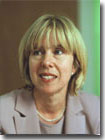Uk Hotel Sector Resilient Despite July Incidents
PricewaterhouseCoopers Reports
Latest Forecasts For London, Birmingham, Manchester, Edinburgh And Provinces
![]() PricewaterhouseCoopers latest “Hospitality Directions - Europe Edition” UK hotel sector forecast indicates that the summer’s terrorist attacks on London have slowed overall UK hotel demand, but probably only in the short-term.
PricewaterhouseCoopers latest “Hospitality Directions - Europe Edition” UK hotel sector forecast indicates that the summer’s terrorist attacks on London have slowed overall UK hotel demand, but probably only in the short-term.
The forecast predicts slower growth, not an end to growth
PricewaterhouseCoopers expects the impact to be short-lived and concentrated mainly in London. So far, the sector still seems to be resilient to the consumer downturn impacting high street retailers and the general economic slowdown. With hotel industry performance directly related to the economy’s business cycle, continued economic growth, albeit slower, should support continued hotel demand growth.
July’s events have affected demand for both overseas and domestic travel in London and as a consequence demand for hotel accommodation, making the task of achieving previous year’s real RevPAR peaks more difficult.
PricewaterhouseCoopers has developed new improved econometric forecasts for the UK hotel sector for the three years to 2005 to 2007 and has initiated wider UK city coverage, including city-specific forecasts for Edinburgh, Birmingham and Manchester.
ADVERTISEMENT
 Liz Hall, Head of Research and editor of “Hospitality Directions - Europe Edition,” PricewaterhouseCoopers comments: “Our September forecast for the UK expects 3.3 per cent RevPAR growth in 2005 and a further 3.3 per cent in 2006, with a gain of 4.0 per cent in 2007. This growth will be driven primarily by room rate growth. Not bad at all, under the circumstances, although not as exciting as the 7.9 per cent and 6.5 per cent growth we expected back in our May forecast for 2005 and 2006.”
Liz Hall, Head of Research and editor of “Hospitality Directions - Europe Edition,” PricewaterhouseCoopers comments: “Our September forecast for the UK expects 3.3 per cent RevPAR growth in 2005 and a further 3.3 per cent in 2006, with a gain of 4.0 per cent in 2007. This growth will be driven primarily by room rate growth. Not bad at all, under the circumstances, although not as exciting as the 7.9 per cent and 6.5 per cent growth we expected back in our May forecast for 2005 and 2006.”
Robert Milburn, UK Hospitality & Leisure Leader, PricewaterhouseCoopers commented:
“While the sector is still growing, the pressure is on operators to keep customers happy and to operate even more efficiently. Although hotels and restaurants have (so far) been more resilient than some other sectors, analysts are speculating whether the consumer downturn may be spreading to the service sector.”
CITY FORECASTS
For London, despite the short term problems, PricewaterhouseCoopers anticipates 2.5 per cent RevPAR growth in 2005 and a further 2.6 per cent in 2006, with a gain of 3.9 per cent in 2007. Average room rates should top the £100 mark again in 2006. However occupancies, which are already much higher than many other European and UK cities, are expected to show only marginal growth and are likely to linger in the high 70’s.
This forecast represents a substantial downward revision from the last forecast in May 2005 of RevPAR growth of 10.3 per cent and 8.6 per cent for 2005 and 2006 respectively.
Manchester is forecasting above average RevPAR growth for 2005 of 5.9 per cent, slipping slightly to 5.4 per cent in 2006 but increasing to 6.1 per cent in 2007.
Birmingham suffers from a weaker economic environment and relies heavily on lower-rate conference and meetings business. The forecast reflects this with RevPAR growth of 1.7 per cent in 2005, 2.7 per cent in 2006 and further growth of 2.6 per cent in 2007, slightly below our forecast for UK and the Provinces.
Edinburgh, with a good mix of high-end leisure and corporate business and some of the highest room yields in the country after London, forecasts RevPAR growth of 3.4 per cent in 2005, 3.3 per cent in 2006 and 2.7 per cent in 2007.
PROVINCES FORECAST
Reasonable RevPAR gains for the provinces of 4.5 per cent in 2005, further growth of 4.6 per cent in 2006 and 3.7 per cent in 2007 are forecast despite the uncertainty following the summer’s events and the effect of the economic slowdown on consumer expenditure.
Liz Hall, Head of Research and editor of “Hospitality Directions - Europe Edition,” PricewaterhouseCoopers added: “The forecast and the growth trend could be disrupted by a less favourable international environment and a more severe softening of UK economic growth as well as the fear of further terrorism attacks. There has been speculation that areas outside London may ‘benefit’ from the capital’s displaced travel, although as a major gateway city for the rest of the UK, this effect could be mitigated if travellers do not come at all.”
Revenue per available room (RevPAR) - is a key performance metric used in the hotel industry which reflects demand. It is calculated by multiplying a hotel’s average daily room rate (ADR) by its occupancy rate.
Hospitality Directions Forecast Alert - May 2005 is available electronically. Copies for the media are available from Rohan Hutchings, PricewaterhouseCoopers on +44 (0) 20 7804 7509 or [email protected]
The report charts hotel statistics for the UK, London, Birmingham, Manchester, Edinburgh and the Provinces. Please see chart (emailed as a separate PDF document) for full details.
Launched in January 2000, PricewaterhouseCoopers Hospitality Directions - Europe Edition is a biannual research journal, with quarterly forecast updates, offering original research on the European hotel industry. The journal draws on PricewaterhouseCoopers economic modelling skills and industry knowledge.
——-

